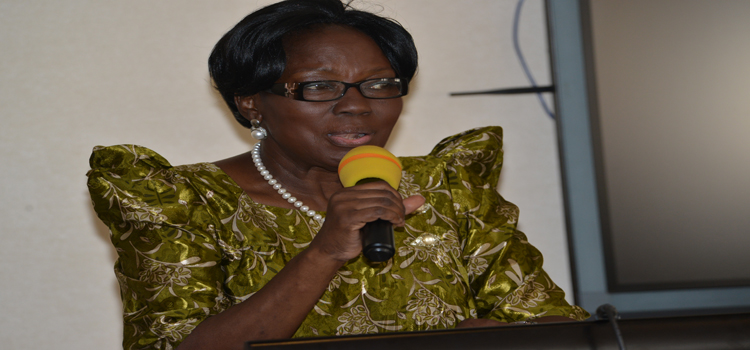Kadaga calls for restrictions on labour export

The Speaker of Parliament, Rebecca Kadaga has proposed that labour export is a monopoly of government in a move to curb the rising cases of human trafficking.
“One of the things we have demanded from government is that if there must export of labour, it should be government to government,” Kadaga said adding tha, t “we need to know where our people are going; we need to know what they are doing and their terms of employment are”.
Kadaga made these remarks while opening a workshop on modern day slavery at Golden Tulip Hotel, Wednesday, 15 May 2019. The workshop was an engagement of different stakeholders to inform the proposed Anti-Slavery Bill 2018.
Kadaga said that most Ugandans who have been victims of slavery in foreign countries are not registered at Uganda’s missions abroad making it difficult for their rescue.
She recounted an experience in Dubai where she asked Ugandans, to register with the Uganda Embassy but they declined.
“They don’t want to associate with the government. How do I know how to rescue you if you don’t want to register with the Ugandan mission? You can’t even budget for them. But we are trying to allocate some money to that cause,” Kadaga said
Kadaga called on the public to be more vigilant on cases of human trafficking which she said had become rampant within the country. She recalled an incident last year when she rescued five children kept in a house in Nakawa for three months because of alerts from the local councils.
“These children were trafficked from Ngora. Their rescue was possible because the chairperson was vigilant; he was curious about movement of food in and out of a house in his village, “ she said.
Kadaga was disappointed that most of these labour export companies are owned by government officials adding that this may compromise regulations on human trafficking.
“It is annoying that a number of ministers in this government own labour export companies; so you cannot expect them to supervise a sector where they have interests, ” said Kadaga.
Hon Herbert Ariko (FDC, Soroti Municipality) who will present the Anti-Slavery Bill highlighted the hotspots of human trafficking within the country.
“Karamoja is becoming a key source of either trafficked or enslaved people, Soroti is becoming more of a holding place and a transit centre, so are Mbale, Tororo and Busia districts, “ Ariko said.
He added that, ‘whereas government needs to step up the fight against human trafficking, regulation of other forms of slavery such as forced labour, servitude and forced commercial sexual exploitation should be on top of government’s agenda’.
The Anti-Slavery Bill 2018, seeks to repeal the Prevention of Trafficking in Persons Act, 2009 and make provision for the prohibition of slavery, servitude and forced or compulsory labour, commercial sexual exploitation, debt bondage, human organ trafficking as well as provide for the repatriation and compensation of victims of the offenses under the Act.
